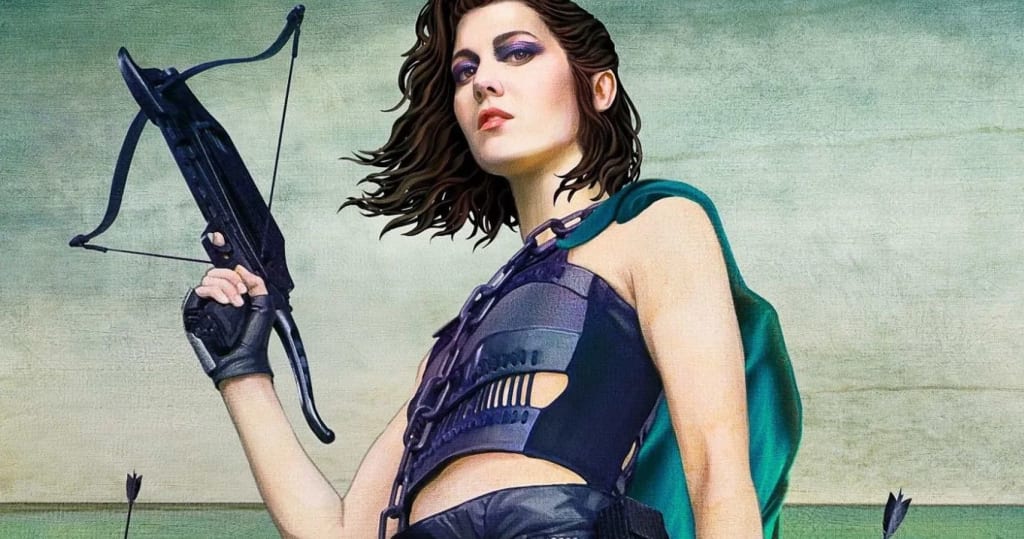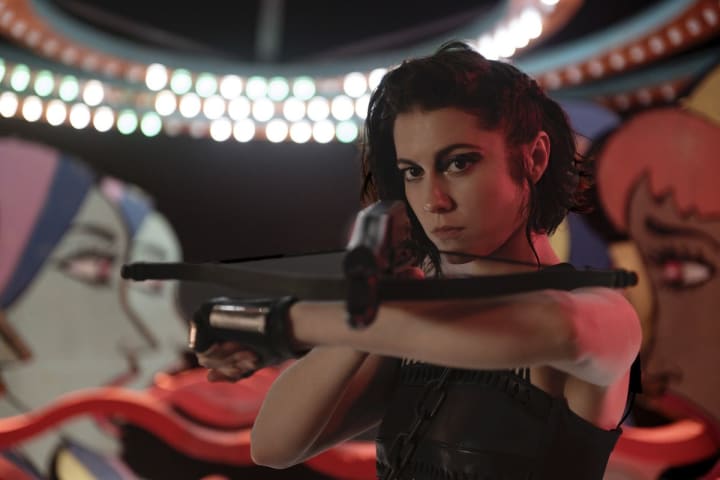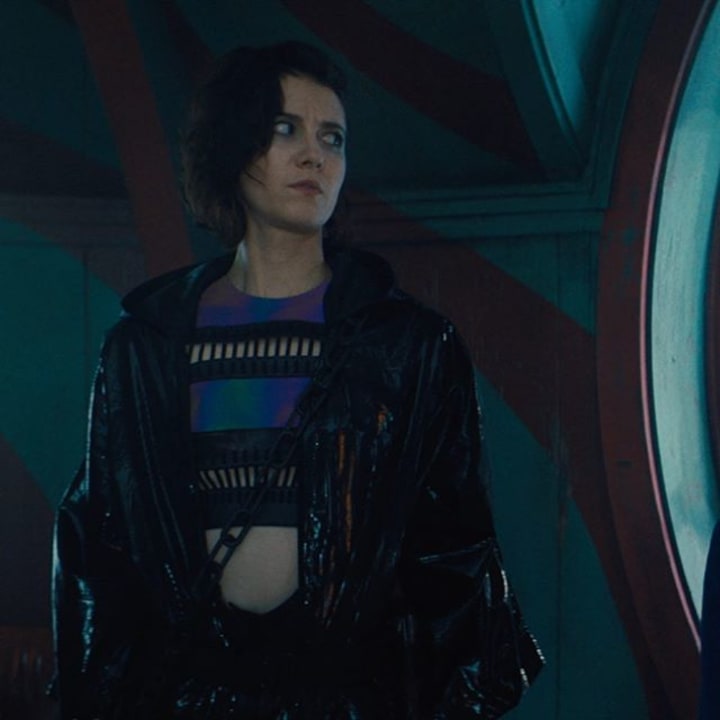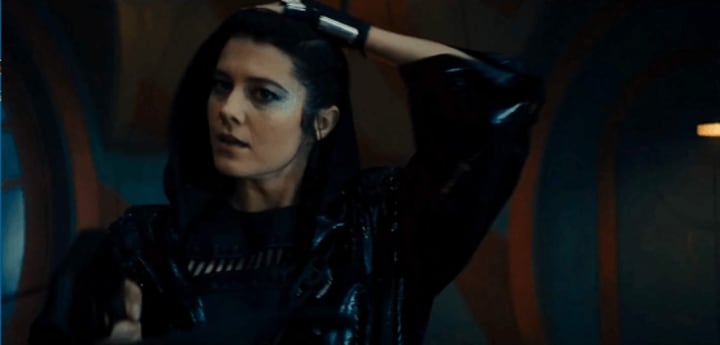
As I already discussed with Harley Quinn, the film Birds of Prey does follow a theme of a fight for control. We live in a world where people among various races, classes and especially genders fight for control of their life. Harley Quinn fights for her own independence and status as a single woman. Huntress operates in a role we rarely ever see of women in film, the lone vigilante set-out for vengeance.
We do have a few films of women taking matters into their own hands. One prime example is Sigourney Weaver as Ripley from the Alien Saga. She fights for her own survival in the first and third film. Yet, one can argue she is set out for vengeance in the sequel Aliens. Sure, she wants blood for the massacre of her crew and the trauma the alien gave her. Yet, there seems to be more nuance to it than just that. As Ripley also wants justice, especially after the death of an unknown family and the sheer fact she knows the threat these creatures can pose to others. As far as Ripley is concerned this is not just some personal vendetta but a mission. Her pairing with the military drives this statement home.

Helena Bertinelli or Huntress does not fit this paradigm. We have to remember, Huntress came from a wealthy, privileged family. Mind you, her father was a mafioso crime lord, think Marlon Brando’s The Godfather role. Not only her father but her entire family is gunned down in what is a hostile takeover. Her desire for vengeance flies in the face of most Americans’ preconceived notions of justice. First, Mr. Bertinelli was a criminal, hence why should we afford him any justice or repentance? Many citizens still do not want their tax dollars going towards the upkeep, health and well-being of imprisoned criminals. Secondly, many people may not deem this act as justified or criminal. Instead, apathetically they recite the Gospel of Matthew of he who lives by the sword, shall die by the sword. In other words, Bertinelli invited this upon himself. Apathetic outsiders living on the outside, looking in, will most likely take one of these two views. If you choose to empathize with Helena, you will see these people were her family. They were not murderers, drug dealers and thieves but loved ones to her. Helena taking up arms against these two worldviews is already her fight for control in the world of man.
Again, the lone vigilante trope is remarkably and historically speaking, a staple of masculinity. Various examples exist throughout the ages in film and literature. DC Comics is no stranger to the vigilante with characters like Batman, Red Hood, Damian Wayne and Azrael. In these cases, we have men taking up arms against men’s laws to forge a better world. Female vigilantes are becoming apparent with the likes of characters like Batgirl and Batwoman. Where Huntress differs from these two is simply her bloodlust and personal vendetta. Characters like Batman rest upon the one rule of no killing, which he has passed down to his female surrogates. Simultaneously, although most of these characters come from a past of loss, their vigilante status is personal to a degree, but part of a larger, broader mission. Helena is simply interested in only vengeance, nothing more. We see this near the end of the film where she plans to bail on the women after killing Victor Zsasz, the one man left, responsible for her tragedy.

It is interesting in Huntress chooses this life of hers. Again, we are accustomed to believe women are emotionally unstable creatures. Going out at night with a crossbow, murdering criminals does not equate to emotional stability though. On average, we are used to the emotionally compromised woman being the hysterical, crying victim. Let’s look at one film example, ironically, involving a crime family. In Martin Scorsese's Goodfellas, Karren calls her boyfriend Henry causing him to leave abruptly. Upon arrival, he finds Karren a mess, describing how her next-door neighbor of years sexually assaulted her. In return, Henry approaches her assailant and proceeds to pistol-whip him. In summary, Karren plays the victim and her dashing knight in armor, rides along to punish the evil-doer for his misdeed. By no means should we berate Karren for her trauma. Sexual assault is not a subject to be taken lightly. Yes, a survivor of sexual assault and murder are vastly different subjects. The point however is that Huntress decides to not enter into this victim complex. By all means, yes, she is technically a victim. Instead, she decides to take matters into her own hands. She has no white knight to grant her peace from this trauma, she will take it by force, even at the cost of her own childhood.
Adding to this, is the common misconception of women as docile, submissive and passive creatures. You may have heard the routine remark from men in a mocking tone on women in ‘let us talk about our feelings’ rather than fight it out...you know...like men! It is strange that women are built up as the emotional types, but also the diplomatic rational type to rather talk things out before the conflict escalates. Strangely, Huntress defies this sexist idea and trope. Going back to her emotionally instability, we do find something of a sadist as well. Detective Renee Montoya remarks about the murder scene in the beginning of the film. She notes how the killer wanted to watch the one victim sitting at the center of the table to suffer. As fatal as a crossbow to the throat is, it is not a quick and painless death.

Huntress does in a sense play against the common gender norms and roles played by women, taking up one normally owned by men. In wanting to take control of her life, she feels she has to make something of a performance. On several occasions she asks people if they know who she is, trying to make a name for herself. Common among men of status, especially military figures, doctors and wealthy influential men is to ask those they see on the lower rung of the ladder – ‘do you know who I am?’ Another scenario comes when Black Canary asks “What the hell is up with this bow and arrow shit?” Huntress retorts loudly and angrily “It’s not a fucking bow and arrow! It's a crossbow! I'm not twelve!” Helena has to put on a performance of sorts, almost over-doing it. We can find this common trope among men, especially in action films where the loudest, angriest and unyielding man is the manliest. However, the scene backfires in a sense, providing a comedic moment of levity. Yet, this over-masculinity in some films has backfired among viewers in not taking the character seriously at all. Dare I say, Huntress over performs for an actual reason. She has to show she is not the typical, emotionally distressed little girl. Grant you, no one is truly accusing her of this. Deep down, she knows she is...to a degree. Again, riding a motorcycle, shooting bad guys and practicing in front of the mirror? Hardly a healthy approach to dealing with grief.
Perhaps one can say it is the control that patriarchal society has over the conception of the roles and norms of women. There is no need for women to get involved in conflict, for they buckle under pressure and do not possess the physical prowess of a man. These norms grant Helena no calm though, no peace and no value whatsoever. She has no man to fight for her, and as stated what man will fight for her, given the status of her family? It is hard to say what is in store for Huntress after the end of the film. Yet, her story is one of hope I will argue. Here, we have a woman, an orphan mind you, hence people will box her into the victim complex. With all of that, she took out several dangerous men, all on her own and helped to take out Black Mask and his legions. She has her heel deep in man’s world of Gotham City. Who wants to bet people know her name now?
Feel free to check out my first in this series Birds of Prey - The Fight for Control (Harley Quinn). Plus, if enjoy what you read here, please feel free to leave a like and a tip.
About the Creator
Skyler
Full-time worker, history student and an avid comic book nerd.






Comments
There are no comments for this story
Be the first to respond and start the conversation.